- 1 What is Homepage SEO?
- 2 Why is Optimizing Your Homepage SEO Important?
- 3 How to Create an SEO-Friendly Homepage
- 3.1 Conduct Keyword Research
- 3.2 Create Meta Tags
- Title Tag
- Meta Description
- 3.3 Create Homepage Content
- Demonstrate Trustworthiness
- 3.4 Implement Schema Markup
- 3.6 Use Visuals
- 3.7 Add Internal Links
- 3.8 Build High-Quality Backlinks
- 3.9 Improve Homepage Load Speed
- 3.10 Track and Analyze Performance
- 4 Conclusion
Having a strong online presence is a necessity for businesses of all sizes.
And at the heart of that presence lies your homepage. But simply having a homepage isn’t enough; you need to ensure it’s optimized for search engines to drive traffic. That’s where homepage SEO comes in.
In this post, we’ll discuss the steps to create an SEO-friendly homepage that attracts visitors and ranks well on search engine results pages (SERPs).
From creating compelling content to optimizing metadata and improving site structure, we’ll cover everything you need to know to make your homepage a powerful tool for attracting organic traffic.
1 What is Homepage SEO?
Homepage SEO refers to optimizing a website’s homepage to improve its visibility and ranking on search engine results pages (SERPs).
It involves various strategies and techniques to enhance the homepage’s relevance, authority, and user experience, ultimately driving more organic traffic to the website.
By implementing keyword research, creating valuable content, optimizing metadata, and enhancing user experience, you can improve your homepage’s visibility, attract more organic traffic, and create an SEO-friendly homepage.
2 Why is Optimizing Your Homepage SEO Important?
Your homepage is often the first point of contact between your website and potential visitors. Optimizing it ensures that visitors get a positive first impression, encouraging them to explore further.
Since the homepage typically receives the most internal links from other pages on your site, optimizing it can improve your website’s overall visibility in search engine results.
Your homepage reflects your brand’s identity, values, and offerings. By optimizing your homepage, you can effectively communicate your brand message and establish credibility with your target audience.
A higher ranking on SERPs means more organic traffic to your website. Since organic traffic is often more targeted and likely to convert, optimizing your homepage SEO can result in more qualified leads and potential customers.
Also, by optimizing your homepage’s SEO, you can stay ahead of competitors and attract more attention from your target audience, ultimately driving growth and success for your business.
3 How to Create an SEO-Friendly Homepage
Let us now discuss how to create an SEO-friendly homepage.
3.1 Conduct Keyword Research
Keyword research is an essential component of homepage SEO, as it lays the foundation for optimizing your website’s homepage content to align with the terms and phrases your target audience is searching for.
Consider the topics your website covers and the terms your potential visitors might use when searching for information related to your industry.
For example, if you run a bakery in Chicago, relevant keywords can include Bakery in Chicago, Chicago bakery delivery, cake delivery Chicago, artisan bread, etc.
You can use tools like Semrush, Ubersuggest, Ahrefs, or other free tools to find keyword ideas and improve your SEO strategy.
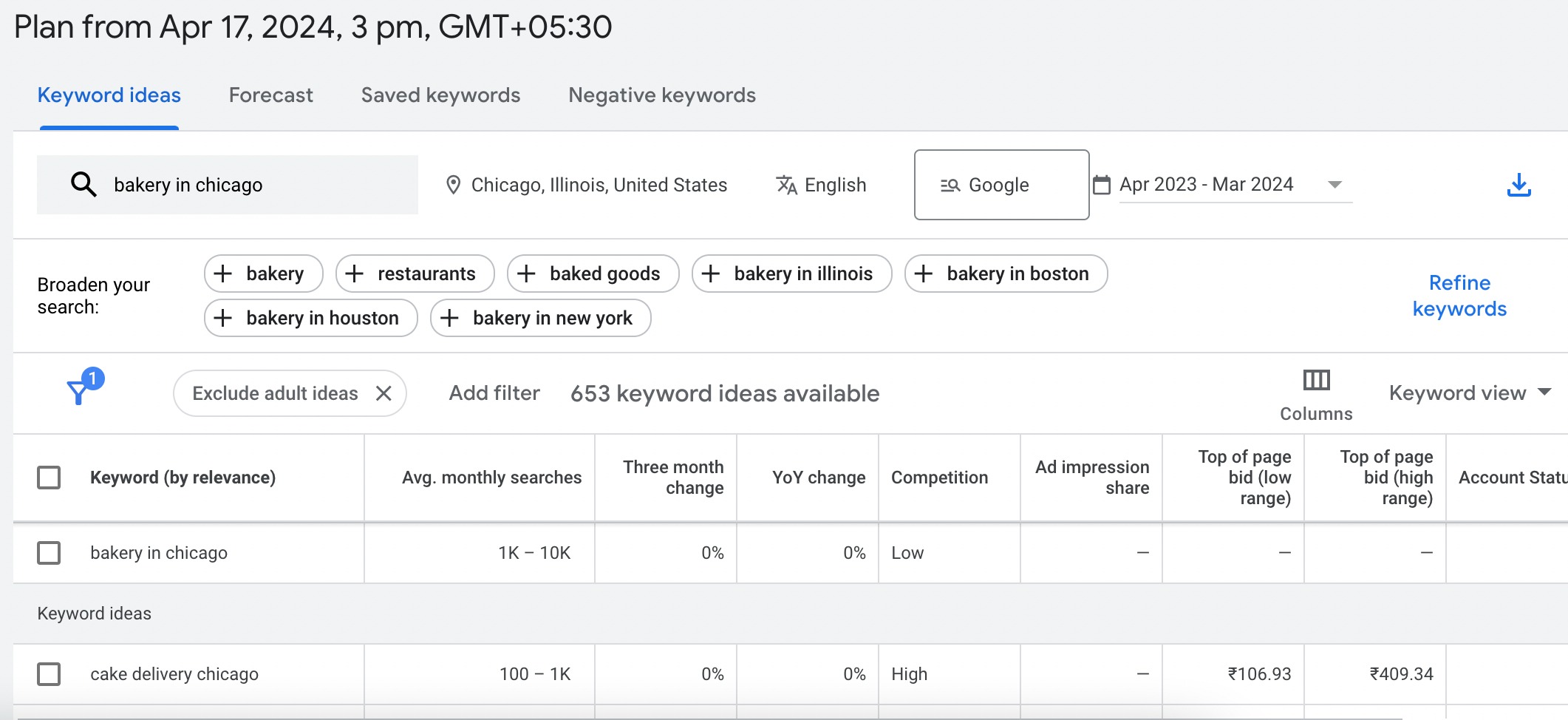
You can also check our video on free Google tools to perform keyword research.
Once you’ve identified potential keywords, you must analyze their competition and search volume. High-competition keywords may be more challenging to rank for, while keywords with low search volume may not attract enough traffic.
To prioritize your keyword-targeting efforts, aim for a balance between relevance, competition, and search volume.
Refer to our dedicated tutorial on keyword research to find keyword ideas easily.
3.2 Create Meta Tags
Creating meta tags for homepage SEO involves creating concise and compelling metadata elements that accurately describe the content of your homepage to both search engines and potential visitors.
Let’s break down each meta tag and its significance in detail.
Title Tag
The title tag is perhaps the most important meta tag for homepage SEO.
It serves as your homepage’s title in search engine results and should accurately reflect its content while including relevant keywords.
For example, a bakery in Chicago can have a title tag like Chicago Bakery | Fresh Pastries & Delicious Cupcakes, effectively communicating the bakery’s location, offerings, and unique selling proposition.
The title tag should be 50-60 characters long to ensure it displays properly in search engine results. Include primary keywords at the beginning of the title to signal relevance to search engines.
Here’s what our title tag looks like in SERPS.
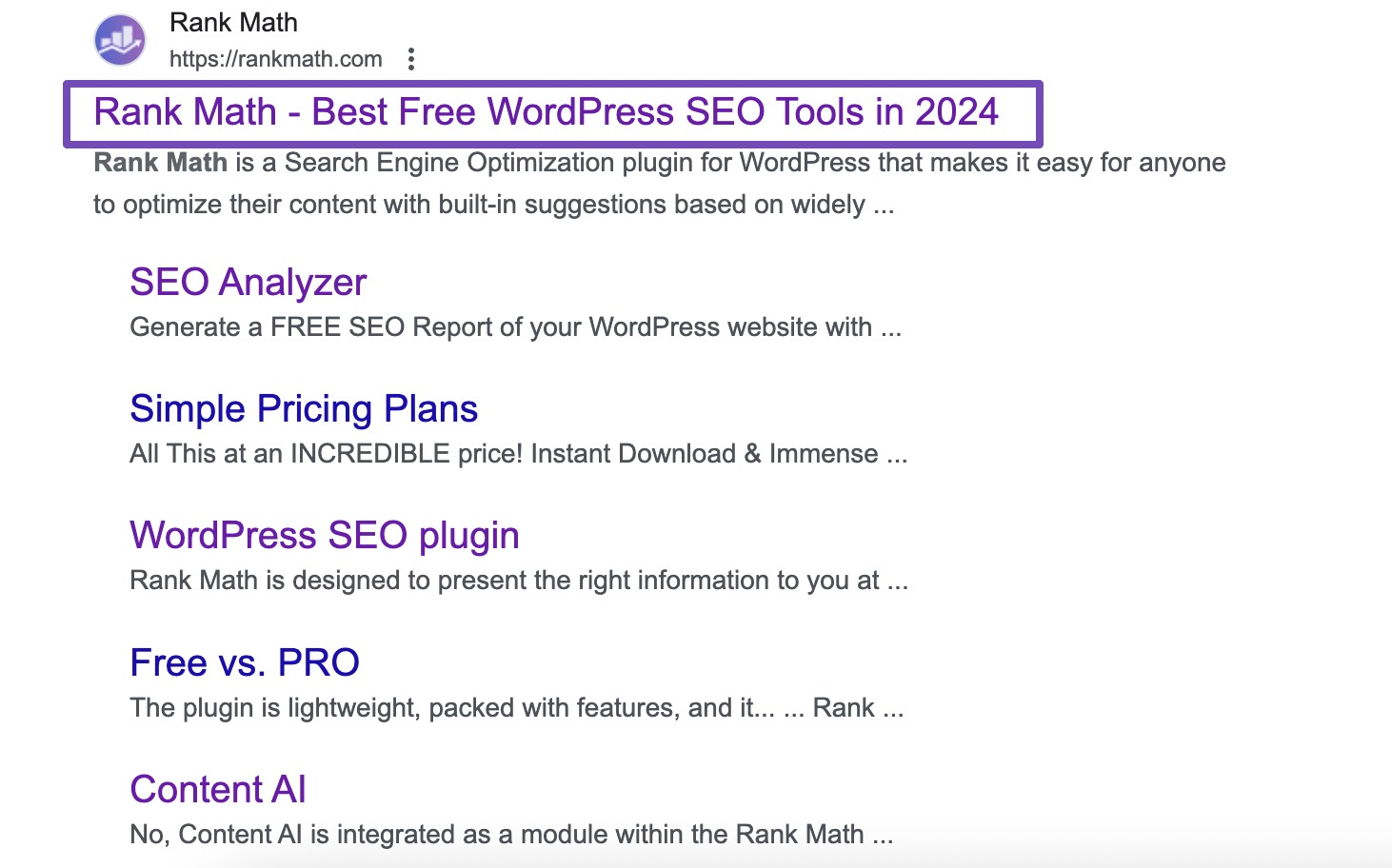
Meta Description
The meta description provides a brief summary of your homepage’s content and serves as a snippet in search engine results.
Keep it under 160 characters to ensure it’s fully displayed. It should be concise and engaging and include primary keywords to improve relevancy.
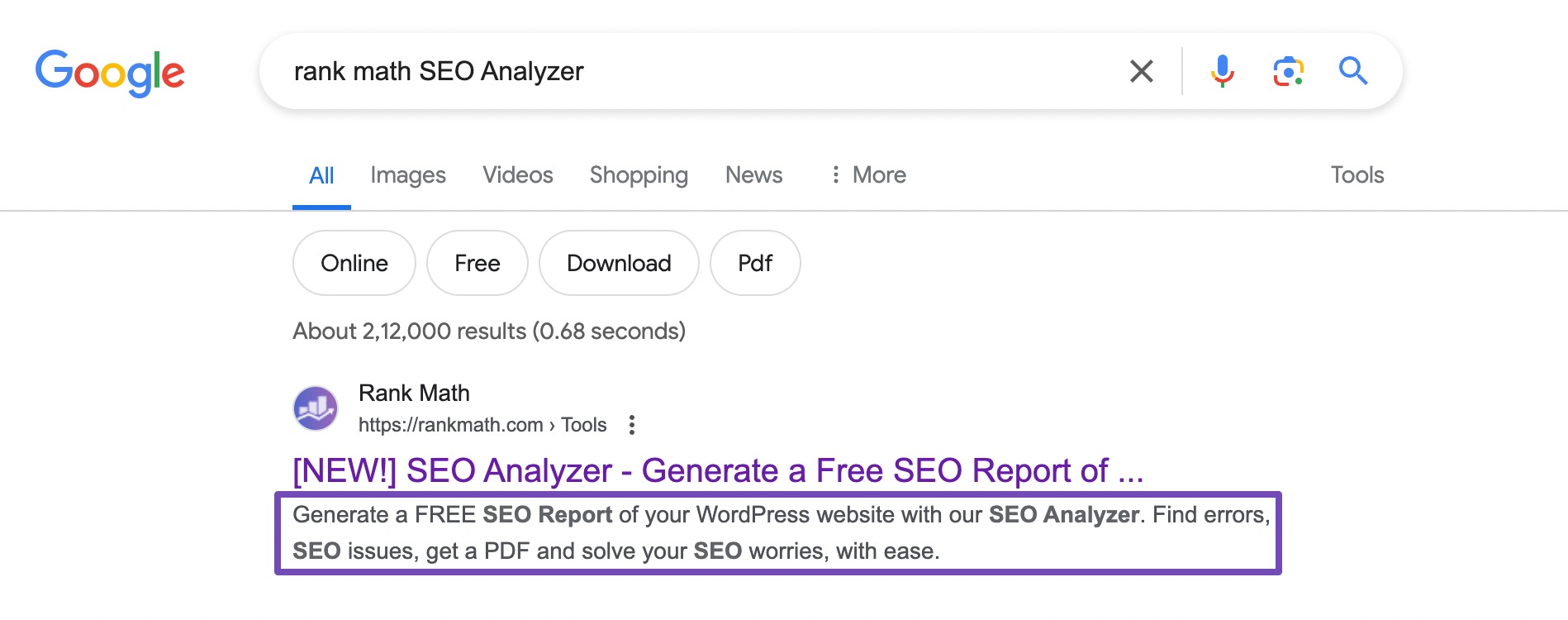
Continuing with the bakery example, the meta description can be: Welcome to Chicago Bakery! Indulge in our selection of fresh pastries and delicious cupcakes. Visit us today for a delightful treat!
Refer to our dedicated tutorial on on-page SEO to optimize your homepage effectively.
3.3 Create Homepage Content
Start with a captivating introduction that clearly communicates the purpose of your website and what sets your business apart.
Answer questions like, what is the primary goal of your website? What value do you offer to visitors?
Briefly overview your products or services, highlighting key features and benefits.
What are your business’s main offerings? What makes them unique or desirable?
For instance, Indulge in our wide selection of freshly baked pastries, from flaky croissants to decadent chocolate eclairs. We also specialize in custom cakes for all occasions, from birthdays to weddings.
When focusing on homepage SEO, ensure your content aligns with audiences’ searches. Understanding the search intent and providing relevant answers or solutions can improve your visibility in search results.

Include your primary keyword in your content’s main heading (H1 tag). This helps search engines understand your page’s topic and can improve its ranking for that keyword.
Ensure that your content is accurate, well-researched, and factually correct. Strive to create content that stands out from the competition. Avoid duplicating existing content and provide a fresh perspective, unique insights, or original ideas that differentiate your content from others in your niche.
You can use Rank Math’s Content AI to create content for your homepage.
Demonstrate Trustworthiness
Include testimonials from satisfied customers or clients directly on your homepage. Positive feedback and reviews can instill confidence in visitors and demonstrate the quality of your products or services. Place testimonials prominently, using quotes or star ratings to highlight customer satisfaction.

Provide clear contact information on your homepage to make it easy for visitors to reach you. Include a dedicated section with your phone number, email address, and physical address, if applicable. Additionally, include a prominent link to your contact page for visitors seeking more information or assistance.
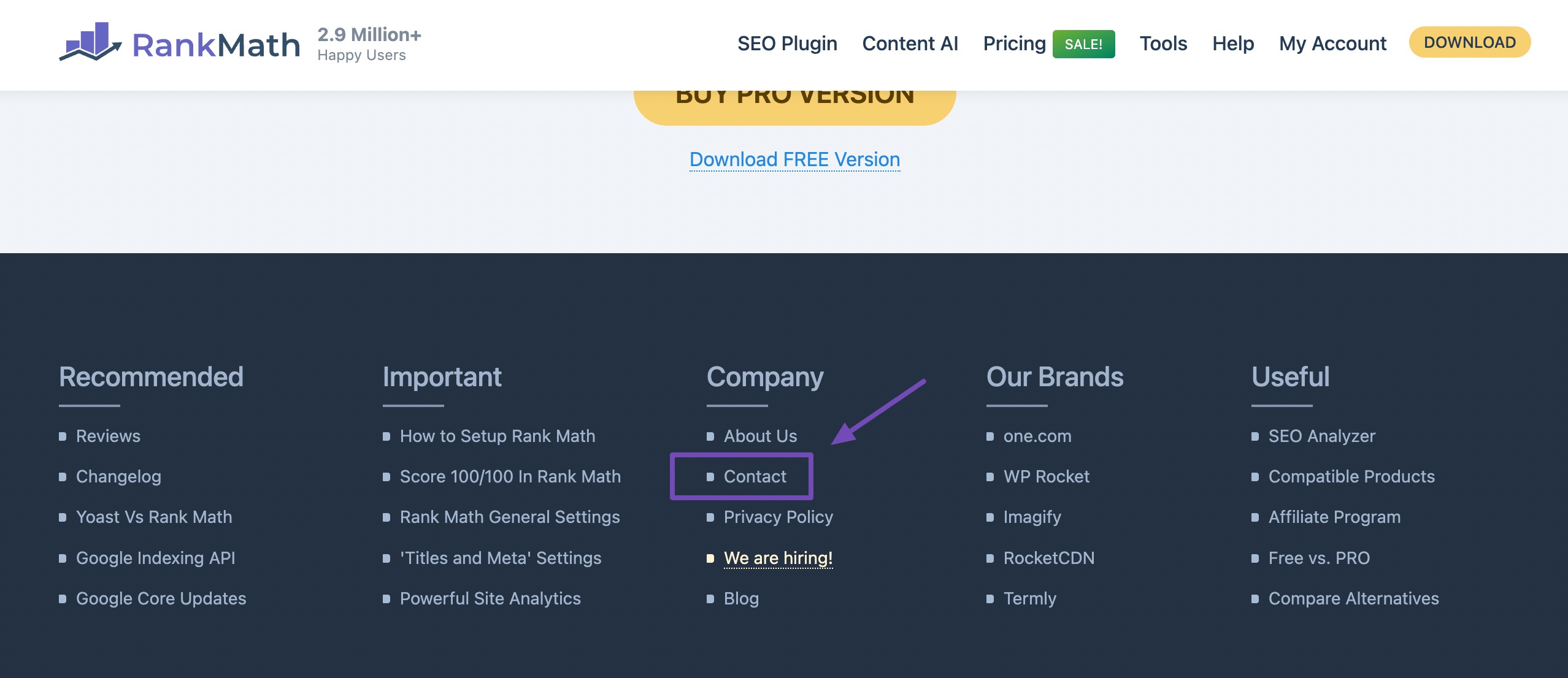
Display your company logo prominently on your homepage to reinforce brand recognition and establish trust. Ensure that the logo is high-quality and visually appealing and links back to your homepage when clicked.
Also, highlight social proof indicators such as the number of customers served, years in business, or positive press coverage.
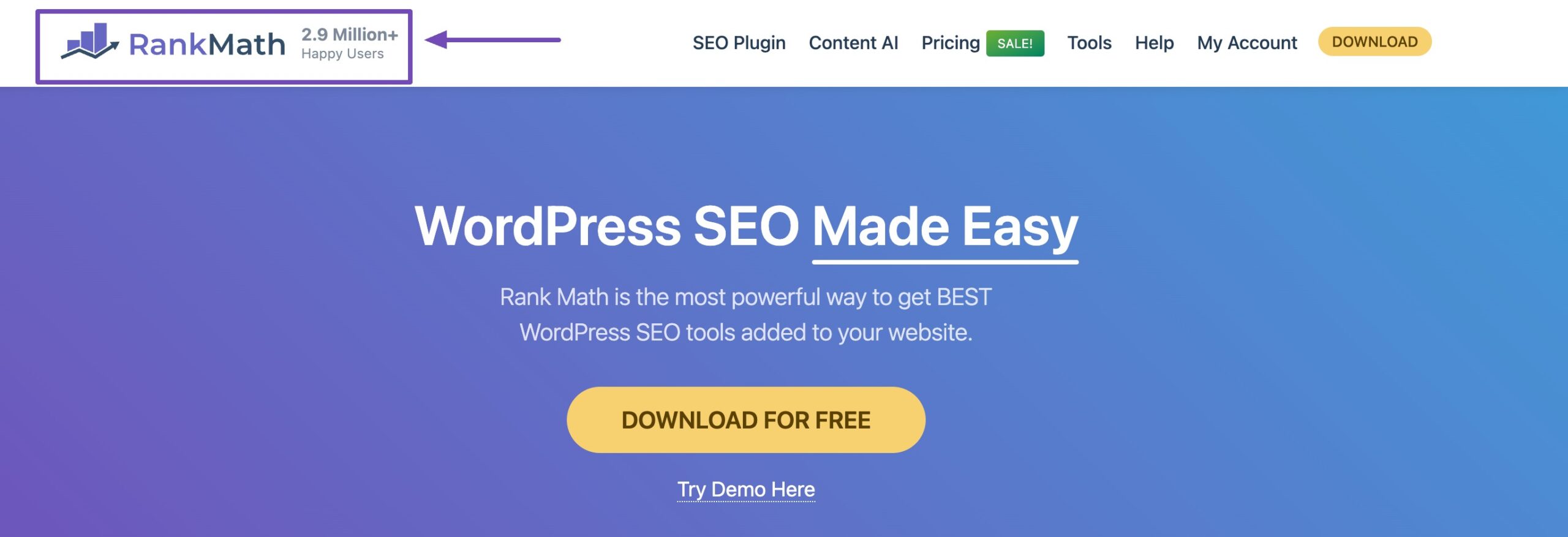
3.4 Implement Schema Markup
Implementing Schema markup is also necessary to create an SEO-friendly homepage.
The structured data helps search engines better understand the information on your webpage, leading to enhanced search results known as rich snippets.
Determine which Schema.org types are most relevant to your homepage content. Common types include Organization for businesses, WebSite for websites, and LocalBusiness for local businesses.
Once you’ve selected the appropriate Schema type, identify the specific properties you want to include. These properties provide detailed information about your business, such as name, address, contact details, logo, operating hours, and more.
To implement Schema Markup in Rank Math, navigate to your homepage. Next, navigate to the Schema tab, select the Schema types you want to add to your homepage and fill out any of the fields Rank Math’s Schema Generator prompts you to complete.
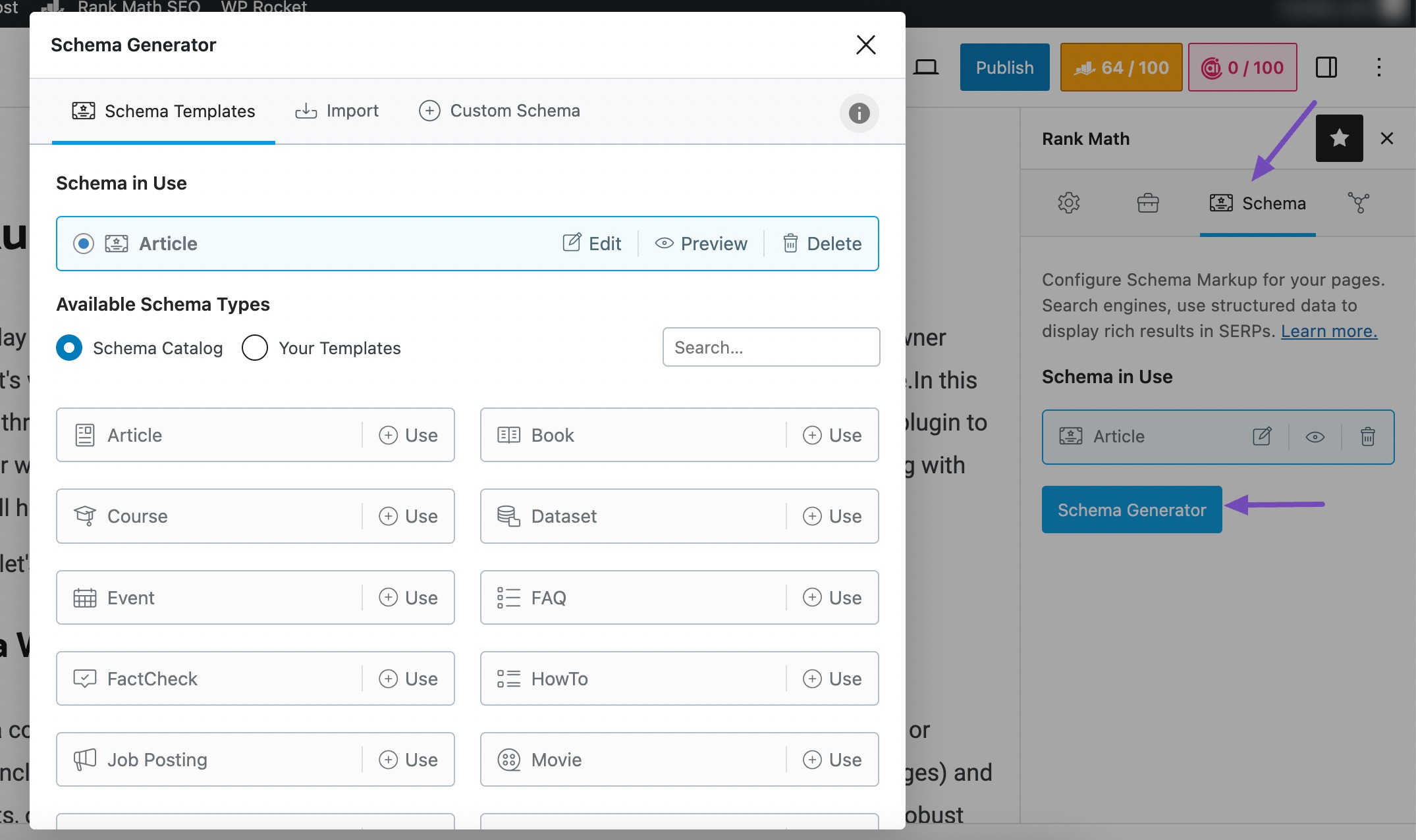
After saving the changes, verify that the Schema Markup is correctly implemented on your homepage. You can do this by code validation or using Google’s Schema Markup Testing Tool to validate the structured data.

You need to optimize the header tags to create an SEO-friendly homepage. This involves strategically using H1, H2, and other heading tags to structure your content to improve readability, enhance user experience, and signal relevance to search engines.
The H1 tag should contain your homepage’s primary keyword or main topic. Keep it concise, descriptive, and relevant to the overall content of the page.
For instance:
<h1>Welcome to NYC Bakery: Fresh Pastries & Delicious Cupcakes</h1>Use H2 tags to divide your homepage content into sections, each focusing on a specific aspect or offering. Include secondary keywords or related topics into H2 headings to provide additional context.
<h2>Our Signature Pastries</h2>
<p>Explore our mouthwatering selection of croissants, muffins, and scones.</p>
<h2>Custom Cake Creations</h2>
<p>Indulge in our custom-designed cakes for weddings, birthdays, and special occasions.</p>Maintain a logical hierarchy of headings, with H2 tags nested under the main H1 heading.
Use H3, H4, and other heading tags for further subheadings or subsections within each H2 section.
<h1>Welcome to NYC Bakery</h1>
<h2>Our Signature Pastries</h2>
<h3>Flaky Croissants</h3>
<h3>Decadent Muffins</h3>
<h2>Custom Cake Creations</h2>
<h3>Wedding Cakes</h3>
<h3>Birthday Cakes</h3>Include variations of your primary and secondary keywords naturally within heading tags. Avoid keyword stuffing and prioritize readability and user experience.
3.6 Use Visuals
Adding visuals to your homepage is a powerful strategy to improve your homepage SEO, engage visitors, and improve overall user experience.
Including high-quality images relevant to your content can make your homepage more visually appealing and engaging.
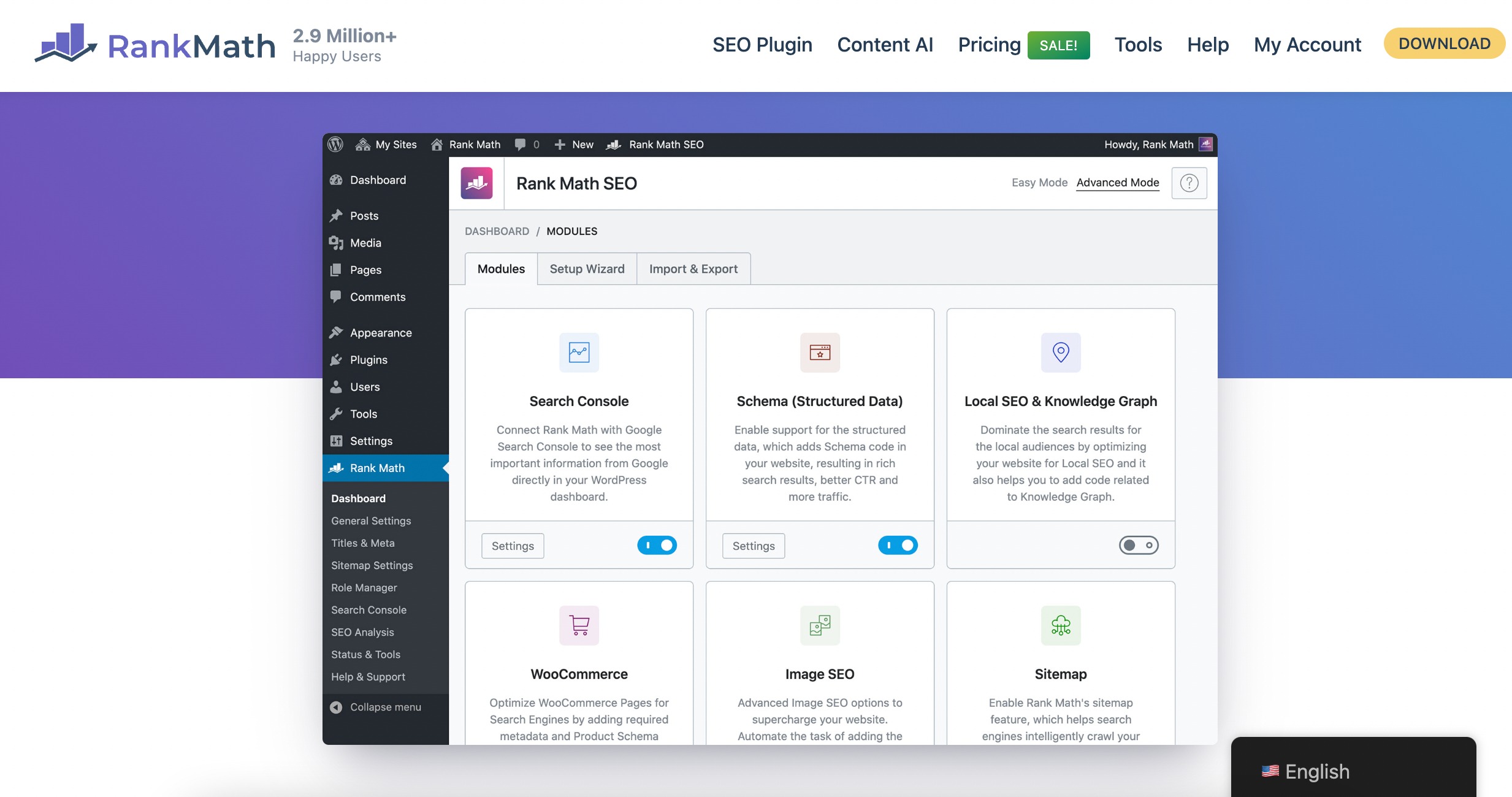
Optimize images using descriptive filenames, alt text, and captions with relevant keywords. This not only improves accessibility for users with visual impairments but also provides valuable context to search engines, potentially boosting your ranking in image search results.
Refer to our dedicated tutorial on image optimization to optimize your images.
Integrating videos can improve your homepage SEO by increasing dwell time and engagement, signaling to search engines that your website offers valuable content.
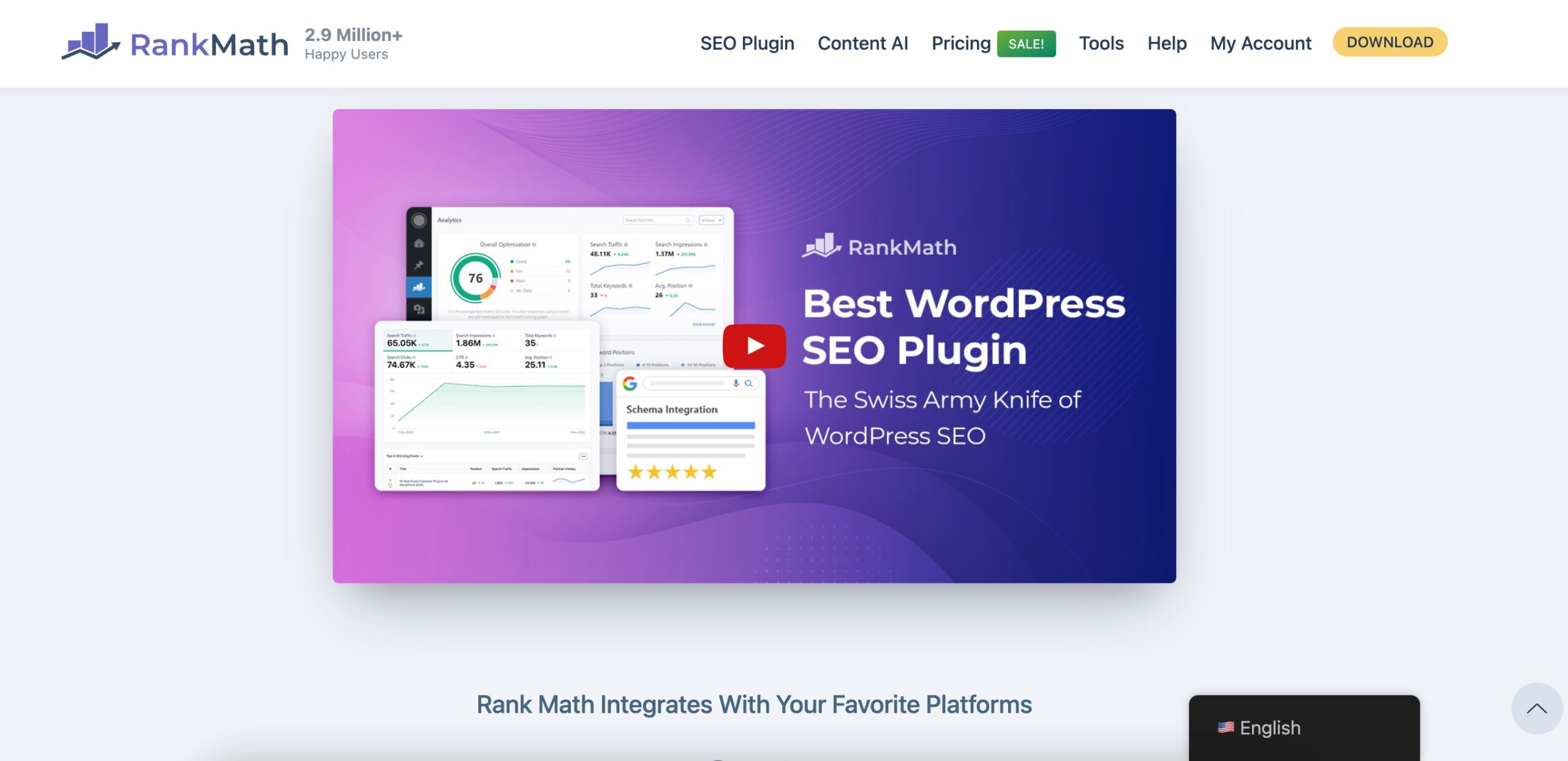
Create informative or entertaining videos that align with your brand and include relevant keywords in the video title, description, and tags.
Also include interactive elements such as sliders, galleries, or interactive maps can enhance user engagement and encourage visitors to explore your homepage further.
Ensure that your visuals, including images, videos, and graphics, align with your brand personality and messaging across all homepage elements.
3.7 Add Internal Links
Adding internal links to your homepage is a fundamental aspect of SEO strategy, as it enhances website navigation, distributes link authority, and boosts the visibility of important pages.
Feature recent or popular blog posts, articles, or resources on your homepage to engage an audience and drive traffic to your content. Link these featured items to their corresponding blog posts or articles.
For instance, the homepage of HubSpot includes the most popular blogs section, which links to its top blogs.
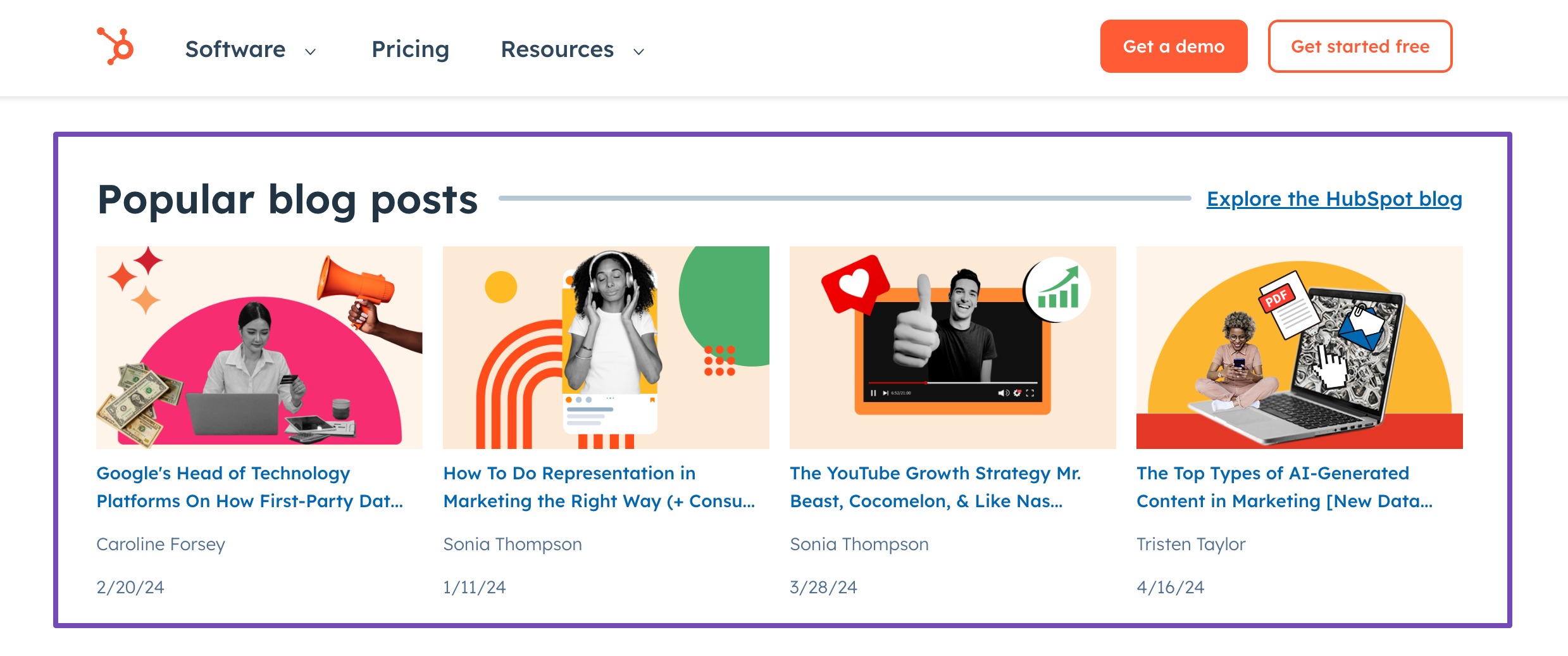
You can also add a footer section with links to essential pages such as About Us, Contact, FAQ, or Terms of Service. This ensures easy access to important information across the website.
Also, ensure the links do not clutter your homepage and navigate your visitors to valuable content.
Refer to our dedicated tutorial on internal links to build strategies to improve your homepage SEO.
3.8 Build High-Quality Backlinks
Building high-quality backlinks for your homepage is essential for improving its search engine ranking and overall SEO performance.
Develop high-quality, informative, and engaging homepage content that naturally attracts other website backlinks. Content that provides unique insights solves problems, or offers valuable resources is more likely to be linked to by others.

Write guest posts for relevant websites within your niche and include a backlink to your homepage in the author bio or within the content where appropriate. Guest blogging allows you to showcase your expertise and reach new audiences while earning valuable backlinks.
Refer to our dedicated link-building tutorial to build links to your website.
3.9 Improve Homepage Load Speed
The speed at which your webpage loads, known as page load speed, significantly affects both SEO and user experience, whether on desktop or mobile.
If visitors to your homepage encounter a lengthy delay in content loading, they’re likely to navigate away before engaging with your content.
To create an SEO-friendly homepage, continuously monitor and test your homepage load speed using tools like Google PageSpeed Insights, GTmetrix, etc. Identify areas for improvement and implement optimizations to maintain fast load times over time.
Refer to our dedicated tutorial on speed optimization to improve your homepage speed.
3.10 Track and Analyze Performance
To effectively track and analyze your homepage, start by defining key performance indicators (KPIs) aligned with your goals.
Set up analytics tools like Google Analytics to monitor traffic volume, bounce rate, and conversion rate. Analyze traffic sources to evaluate user behavior metrics like time on page and pages per session to identify engagement patterns and areas for improvement.
Track conversions and goals to measure the effectiveness of your homepage in driving desired actions.
You can also use Rank Math’s SEO Analyzer to enhance your homepage SEO and improve the search engine rankings.
The SEO Analyzer evaluates various aspects of your webpage, including keyword usage, readability, meta tags, internal and external links, heading structure, image optimization, and more.
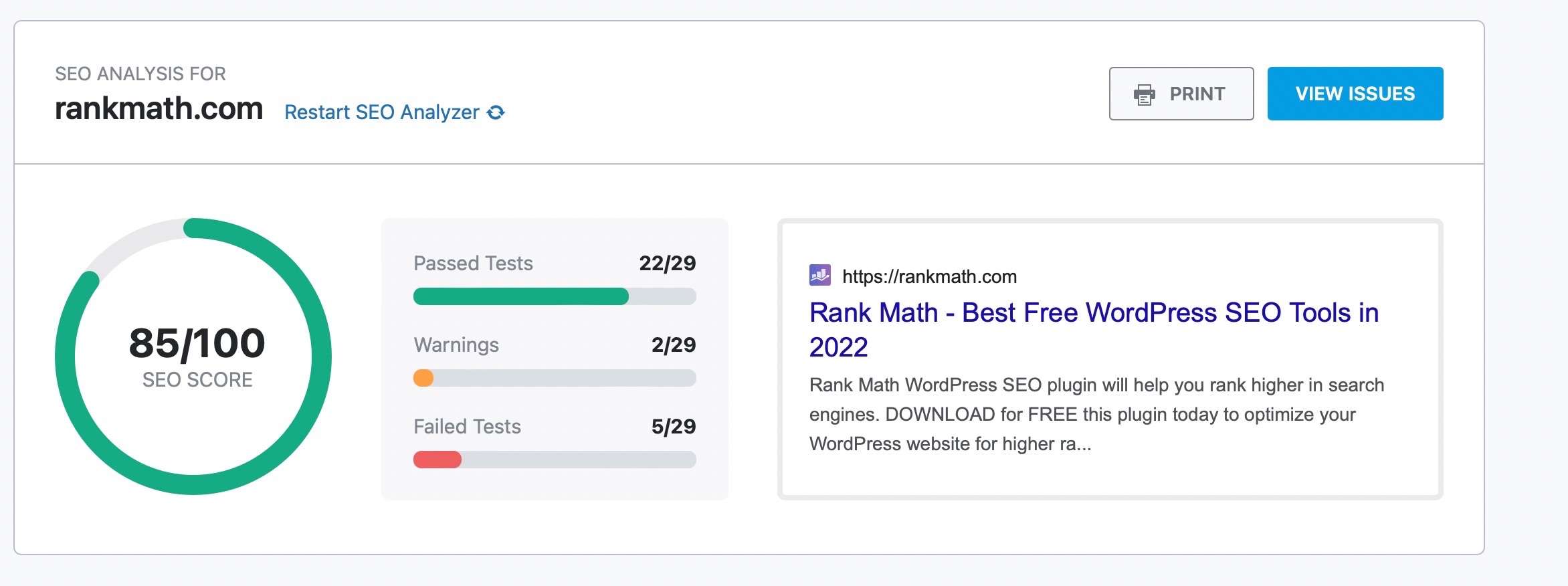
By identifying areas of improvement and providing actionable recommendations, Rank Math’s SEO Analyzer helps you optimize your content effectively for better search engine performance.
4 Conclusion
Creating an SEO-friendly homepage is essential for improving search engine visibility, attracting organic traffic, and enhancing user experience.
Implementing best practices such as optimizing meta tags, integrating relevant keywords, improving page load speed, and enhancing internal linking can effectively boost the homepage SEO.
By prioritizing homepage SEO strategies and continually refining your homepage based on analytics and user feedback, you can create a strong foundation for your website’s success and drive meaningful results for your business.
If you like this post, let us know by Tweeting @rankmathseo.
منبع: https://rankmath.com/blog/homepage-seo/